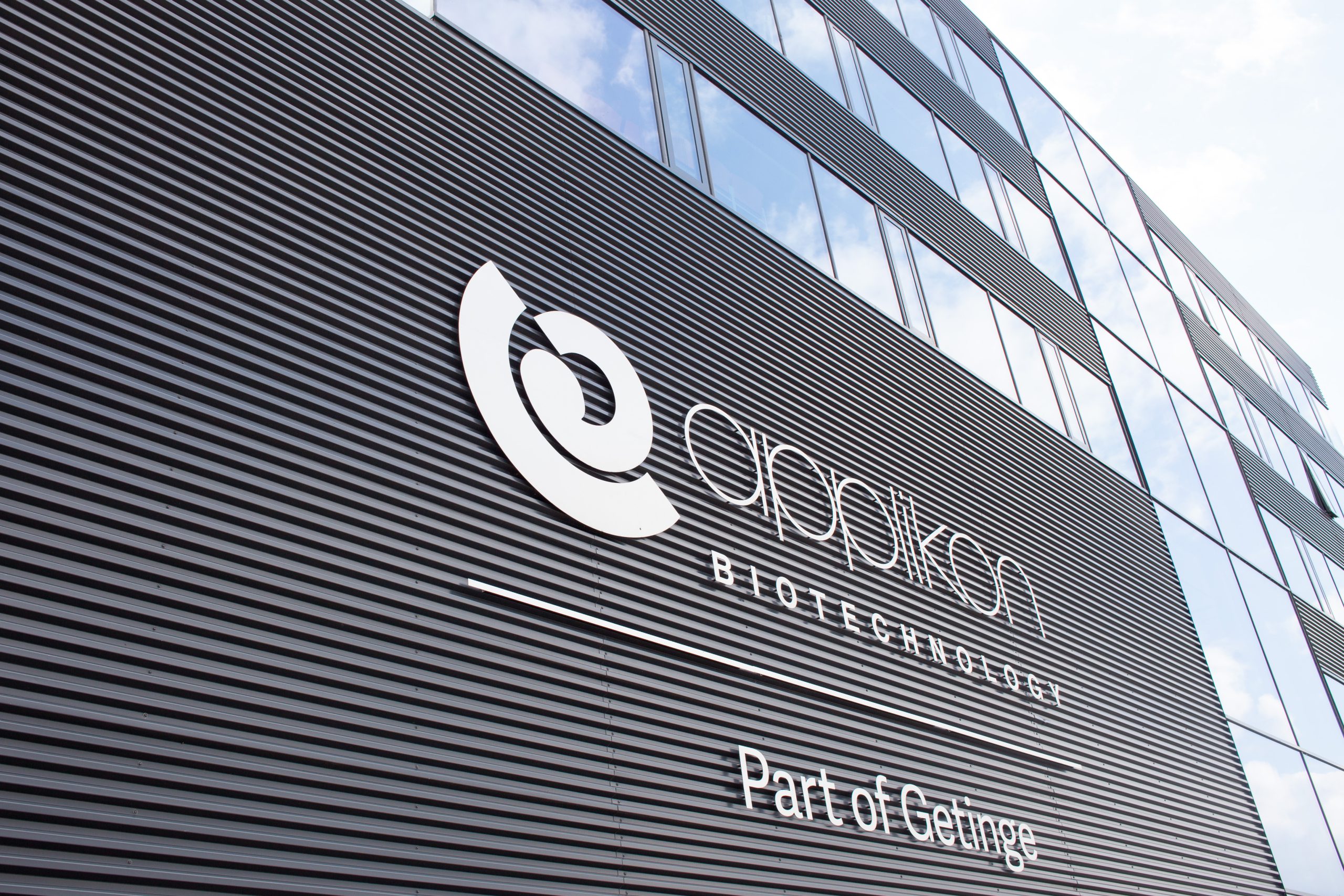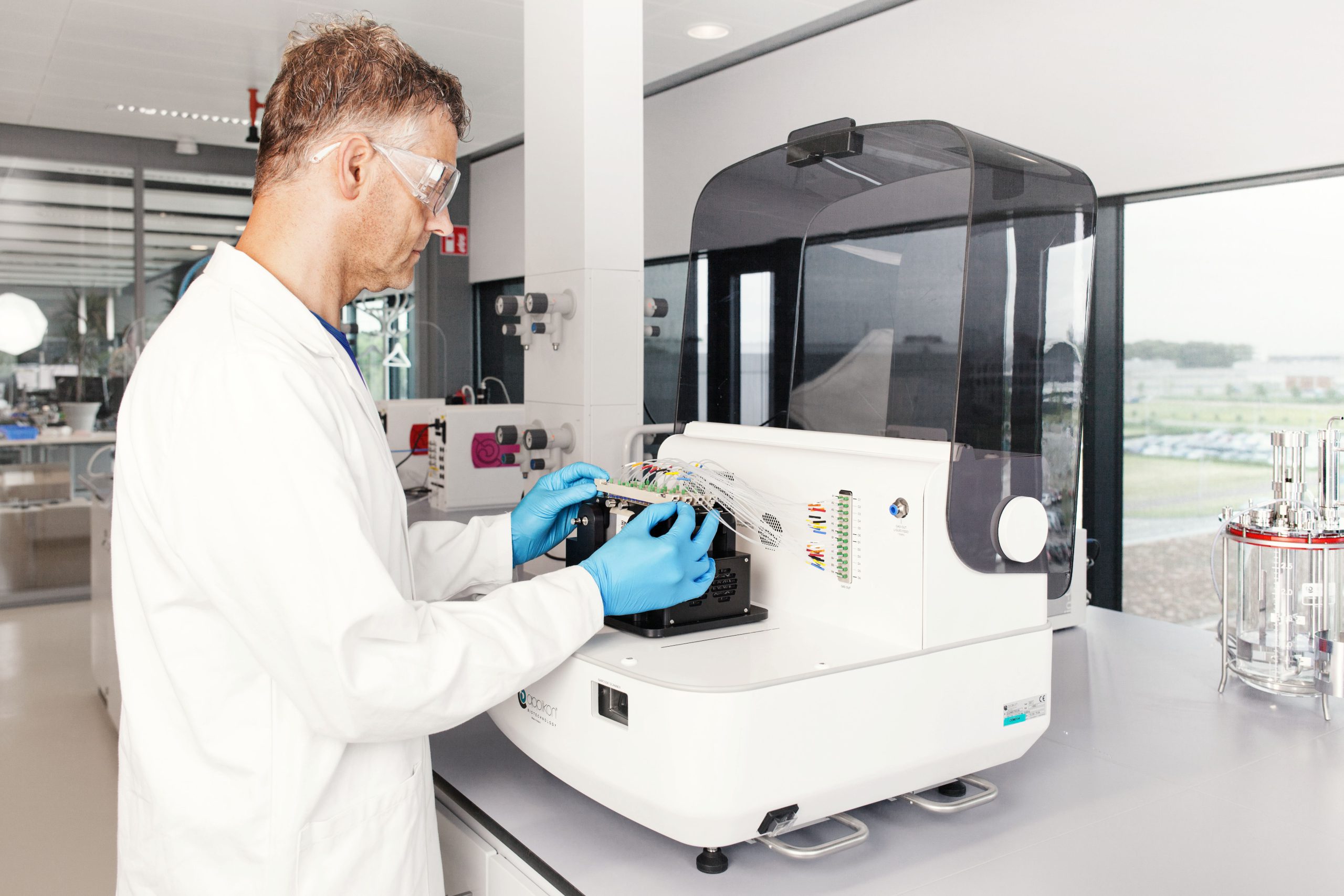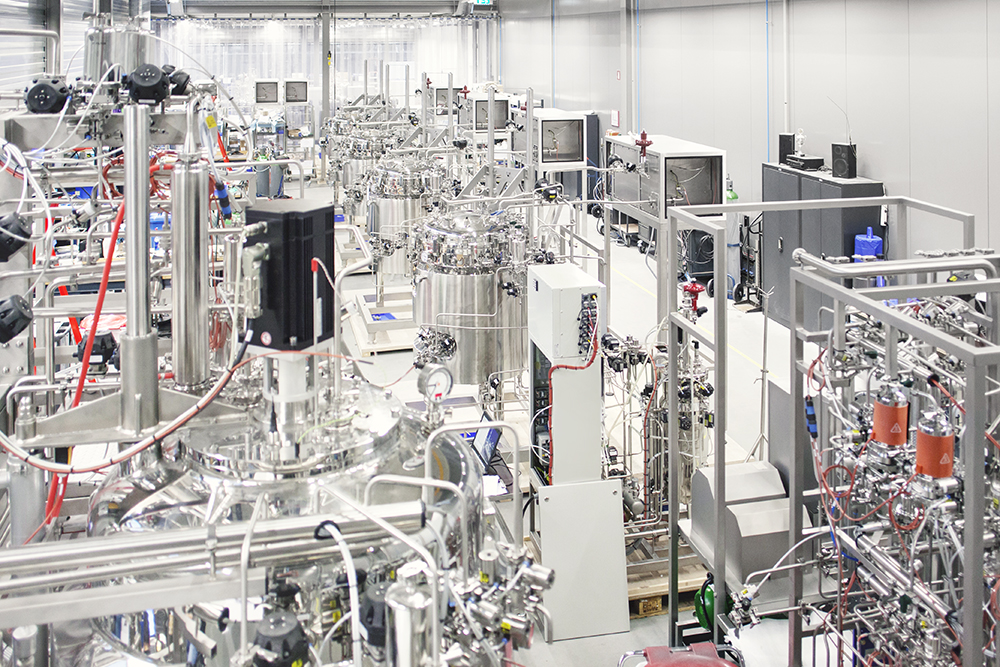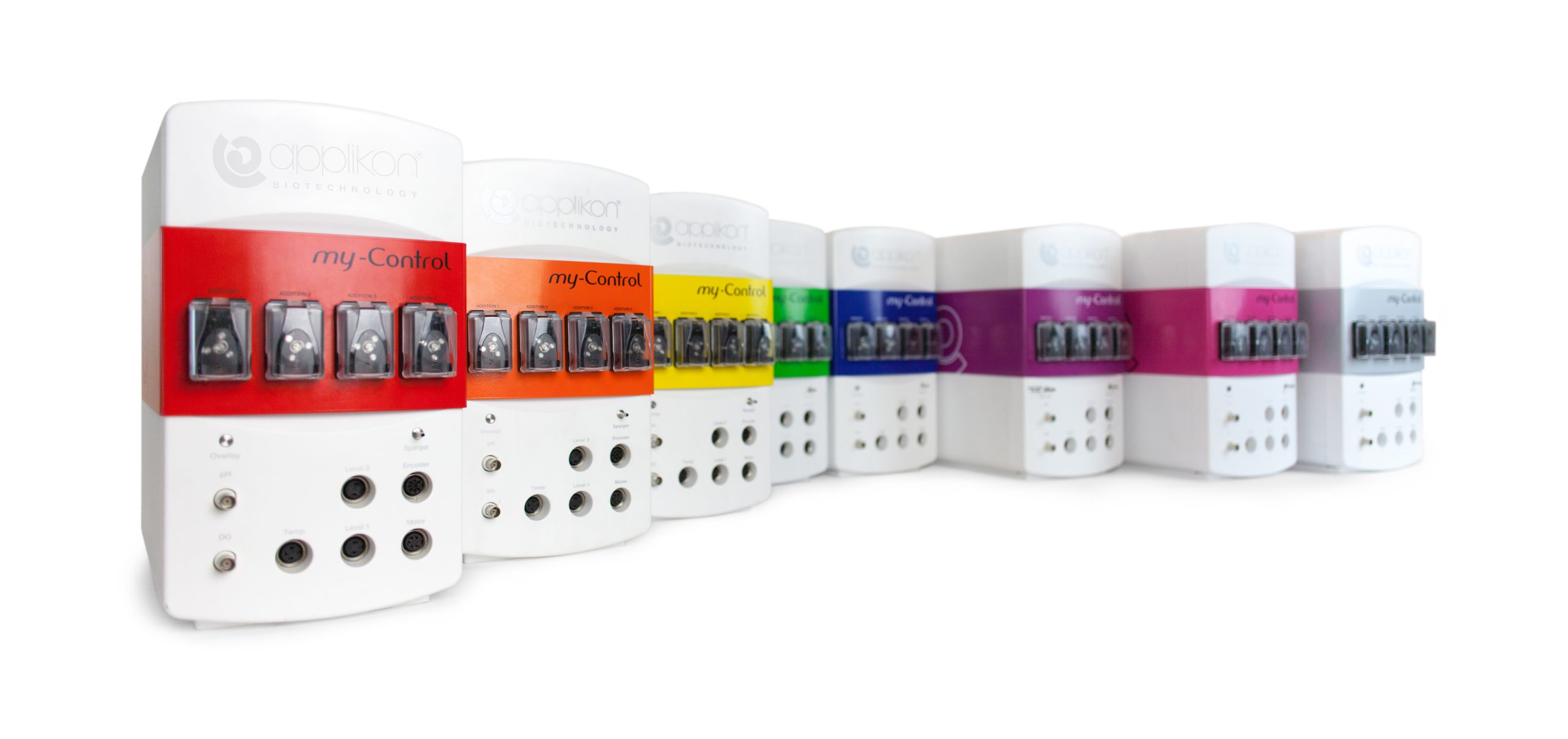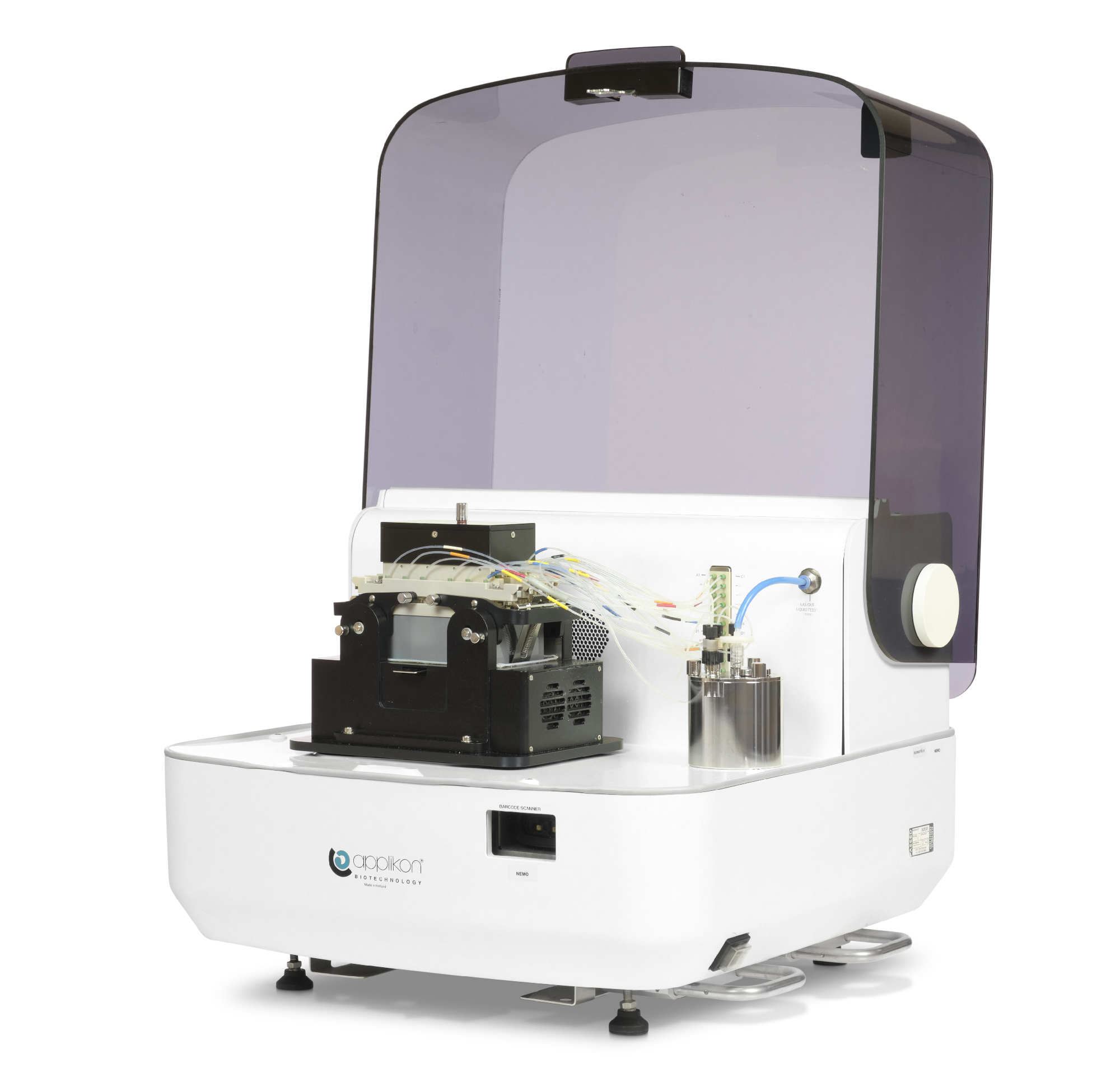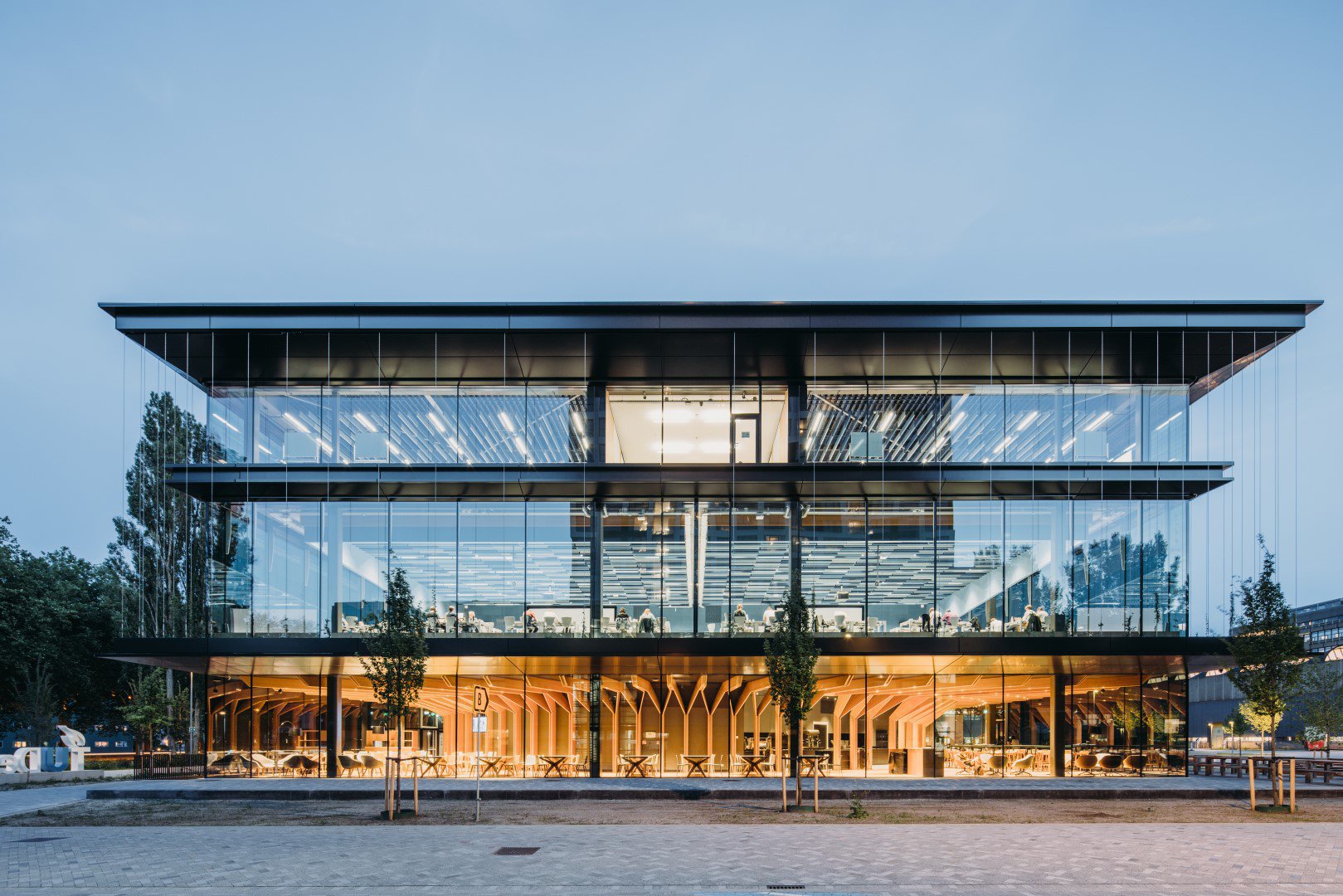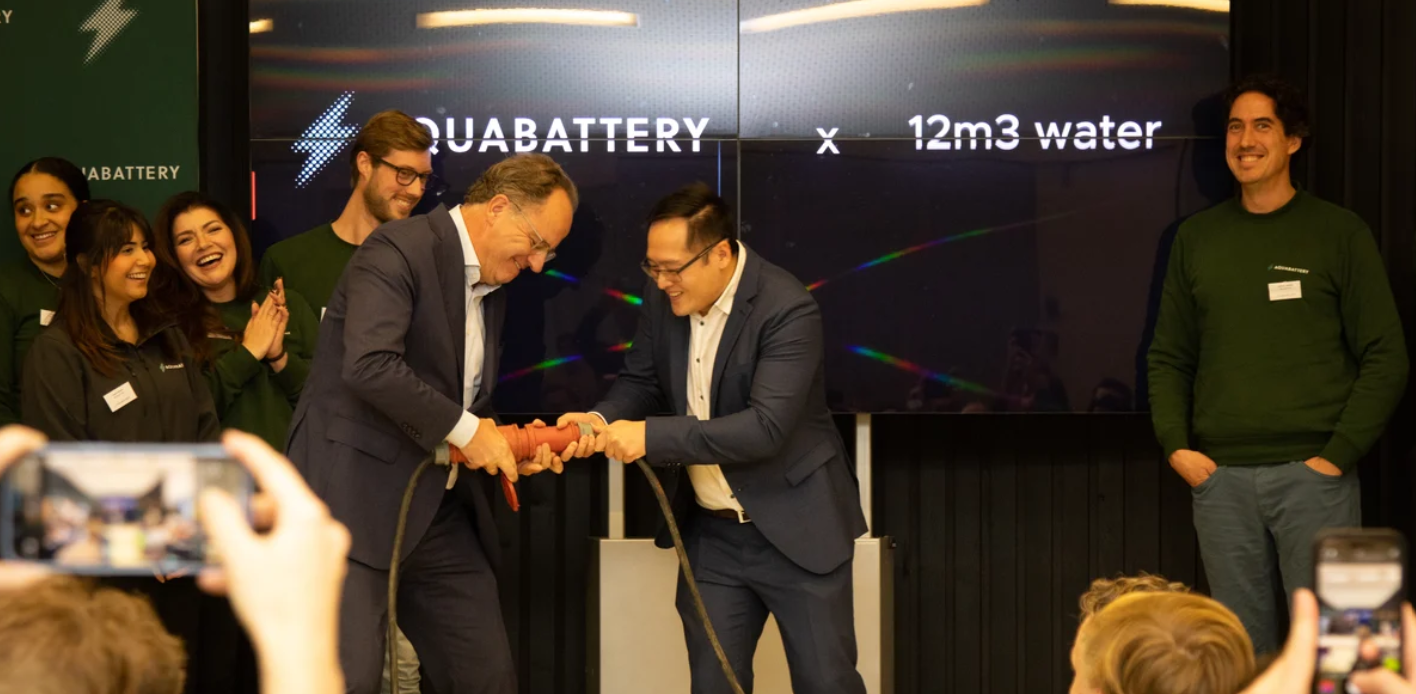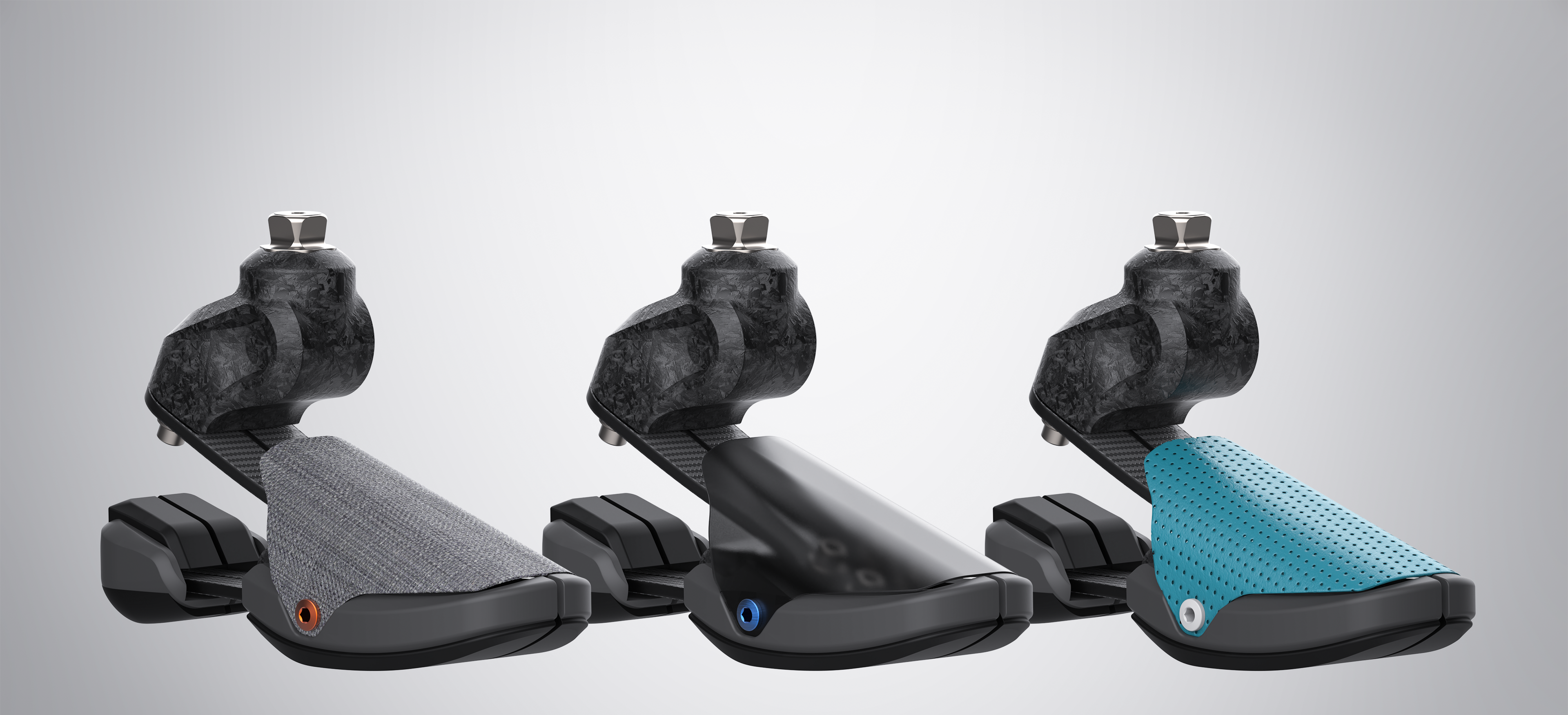A dark-blue building, five stories tall, in the southwest corner of TU Delft Campus. Behind its sleek façade, a complete company specialised in bioreactor systems for the biopharmaceutical industry. As of 2020, this company is part of the Swedish medical technology company Getinge.
Versatile systems
‘Our systems consist of two parts, the bioreactor and the controller,’ says Timo Walvoort, Director of Product Development. ‘Quite a basic company profile.’ Their systems do, however, come in all types and volumes, from 5 milli-litre lab-scale bioreactors up to five thousand litre production-scale systems. Walvoort: ‘Our lab-scale systems are standard systems that are configured to fit the customer’s requirements. The larger systems are engineered-to-order.’
The company, formerly known as Applikon Biotechnology, was founded in 1973 as a spin-off from a Vlaardingen-based glass technology company. It was the first company to build reliable industrial bioreactors. ‘At the moment, all large biopharmaceutical companies are customers of ours,’ says Timo Keijzer, Director of Product Marketing. ‘There are also many universities worldwide using our products, including TU Delft of course.’ The multi-purpose systems are typically used for research into, and the development of, vaccines and medication, including for Covid-19. But they are also applied by the food industry and to produce biofuels.
All under one roof
The company used to be located at two rental properties. Then, in 2013, it moved to their new location at the Heertjeslaan, becoming the first biotechnology company to be housed at TU Delft Campus. ‘Our new construction was designed to be a perfect fit for the activities our 160 employees need to conduct,’ Keijzer says. ‘On the ground floor we have the warehouse, assembly, production and quality control. On top of that the various office areas such as human resources, finance, sales, product management, and also engineering.’ The building, with a sustainable design, uses geothermal heating. The exterior has a dark colour for it to efficiently catch sunlight for heating the underground water reservoir.
The engineering department comprises a variety of technical disciplines – mechanical engineering, electrical engineering, process and verification engineering. ‘At any time, we have one or two ongoing collaborations with TU Delft,’ Keijzer says. ‘And we closely follow the ongoing research, so we can adapt to changing research practices at an early stage. TU Delft also is a location where our visitors can see our systems operate in practice.’ The city of Delft itself is of value as well. Walvoort: ‘It is easy to reach and has a charming old centre where we like to take clients for dinner.’
“With our bioreactors we are committed to a higher quality of life”
Timo Keijzer & Timo Walvoort
Director of Product Marketing & Director of Product Development
3D printing
Both directors describe the connection with TU Delft as ‘somewhat casual’, but it certainly doesn’t translate into a lack of innovation at Getinge. ‘Over the past few years there has been a trend towards ever smaller working volumes,’ Walvoort says. ‘But we have now reached the end of miniaturisation. Analytical equipment requires a certain amount of biomass for it to function.’
As of recently, the company also offers a lab-scale single-use bioreactor, for which the supplier ensures proper cleaning and sterilisation, saving the user a lot of time. ‘We have developed an all-new production process based on 3D printing,’ Keijzer explains. ‘We are the first to have accomplished this feat. It allows us to easily adapt the configuration to the customer’s wishes and requirements.’
Intrinsically variable
A bioreactor creates an optimal environment – temperature, pressure, pH, you name it – for micro-organisms or cells to do what they are supposed to do. Asked about the biggest challenge in designing ever new and improved bioreactors, Walvoort explains that it has to do with the interaction between machine and nature. ‘A welding robot in a car factory creates the same welding joint, a hundred thousand times in a row. For us, no two cultures are the same, because nature is intrinsically variable. Our systems need to be extremely reliable and conform to high quality standards. The material compositions, the exact design details, it all comes down to very high-end, very high-tech engineering.’
His passion for life and drive for innovation keep Walvoort sharp. ‘It always is two steps forward, one step back. And I greatly enjoy contributing to making new vaccines and medications possible.’ For Keijzer, who studied bioprocessing technology at Wageningen University, it also is about contributing to the good of mankind. ‘Looking at how we treat the world, I think it is wonderful that we are looking into cultivating meat or other food in a bioreactor, or extracting energy from it. It’s an aspiration I recognise in all my colleagues.’

